Search Result “Burung Camar Terbang Di Derunya Air”

Fedi Nuril: Public Must Become the Opposition
Actor Fedi Nuril talks about his activism in protest of the democratic decline, and the leadership of Jokowi and Prabowo.
Interview Monday, December 30, 2024 Edition
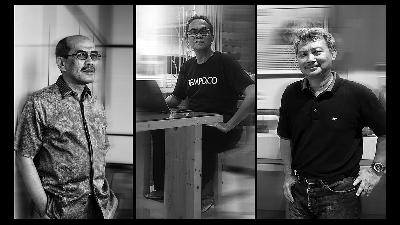
Three Guardians of Academic Integrity
The late Faisal Basri, Sigit Riyanto, and Hariadi Kartodihardjo were three academics who always upheld academic integrity.
Special Report Monday, December 30, 2024 Edition

Celebrities’ Critical Voices on Social Media
Abdur Arsyad and Bintang Emon joined the August 22, 2024 protests, while Fedi Nuril continues to post his criticisms on social media. What moves them?
Special Report Monday, December 30, 2024 Edition
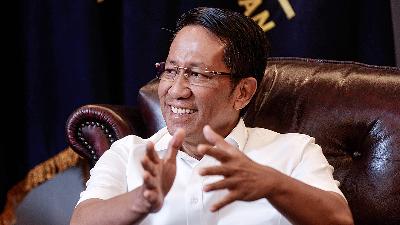
Minister of Law Supratman Andi Agtas: Direct Regional Head Elections Are Not Necessarily Bad
Supratman Andi Agtas explains President Prabowo’s idea to hold indirect regional elections or Pilkada.
Interview Monday, December 23, 2024 Edition

Batanghari River Basin Critical Condition Due to Illegal Gold Mining
Illegal mining exacerbates the critical condition of the upstream Batanghari River Basin Area (DAS). The fraudulent practices involve many actors.
Environment Monday, December 23, 2024 Edition
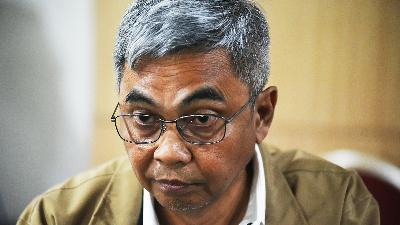
KPK Chair Setyo Budiyanto: No Dual Loyalties in the KPK
KPK’s new chief, Setyo Budiyanto, is confident in tackling investigation and prosecution challenges and determined to unite all staff under his leadership.
Law Monday, December 23, 2024 Edition

Right of Reply from Kukuh Mandiri Lestari
Agung Sedayu Group’s right of reply regarding the interview with Aguan, and letter on the free lunch program.
Letters Monday, December 23, 2024 Edition

Radical Evil
Radical evil holds the view that evil only exists outside of us. This closes off the possibility that evil could be within us.
Marginalia Monday, December 23, 2024 Edition

Prabowo’s Contradictory Economic Policies
The government’s economic policies fail to inspire investor confidence, leading to a turbulent time in the market ahead
Market Pulse Monday, December 9, 2024 Edition

KoinWorks Subsidiary’s Borrower Trap
A subsidiary of the peer-to-peer lending platform KoinWorks falls victim to an alleged fraud, resulting in a loss of Rp365 billion. Lenders are now threatening legal action.
Economy Monday, December 2, 2024 Edition

Sasi in Maluku: An Ancient Tradition to Protect Natural Resources
Amid rampant fish poaching in Indonesian waters, traditional communities in Maluku enforce sasi, a practice that protects the seas and coasts.
Outreach Monday, December 2, 2024 Edition

The Cost of Disobedience
Disobedience has a price. The cost of civility is enormous.
Marginalia Monday, November 25, 2024 Edition

The Joke of Eradicating Online Gambling
The investigation into the Communication and Digital Affairs Ministry employees backing online gambling is expanded to include many people. Ill-gotten gains from a political operation.
Opinion Monday, November 18, 2024 Edition
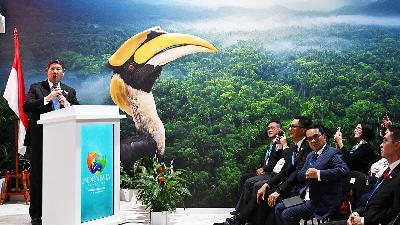
Hashim Djojohadikusumo’s Conflict of Interests at COP29 in Azerbaijan
The presence of Hashim Djojohadikusumo at COP29 in Azerbaijan was considered as bearing a conflict of interests. He was promoting the business of Arsari Group.
Environment Monday, November 18, 2024 Edition
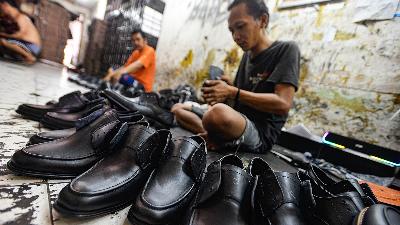
Lack of Information and Misaligned Distribution of People’s Credit
The disbursement of People’s Business Credit faces numerous challenges. Farmers and small business owners are vulnerable to loan sharks and middlemen.
Economy Monday, November 18, 2024 Edition
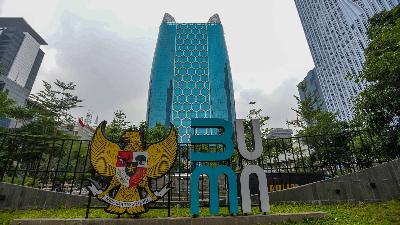
The Long Road to State Companies Super-holding
The plan for a super-holding for state-owned enterprises dates back to the New Order era. The SOEs Ministry will be replaced by a giant corporation.
Cover Story Monday, November 11, 2024 Edition

The Vicious Circle of Judicial Mafia
With the Supreme Court’s judicial mafia, when one branch is lopped off, another 10 grow in its place. It needs to be comprehensively cleaned up.
Opinion Monday, November 4, 2024 Edition

Supreme Court’s Deputy Chair for Non-Judicial Affairs, Suharto: Some Judges Can’t Resist Temptation
The Supreme Court dismissed three judges suspected of accepting bribes in the Ronald Tannur case. This adversely impacts efforts to improve the judiciary.
Cover Story Monday, November 4, 2024 Edition
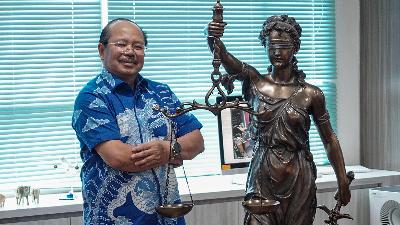
Judicial Commission Chair, Amzulian Rifai: Being ‘God’s Representative’ Carries Heavy Consequences
Judicial Commission Chair Amzulian Rifai on the corruption in judicial institution involving judges.
Interview Monday, November 4, 2024 Edition

Helicopter Service Business Expanding in Indonesia
Driven by corporate demand, helicopter business opportunities continue to grow. Operators are increasingly expanding their fleets.
Economy Monday, October 28, 2024 Edition

The Bogus Commitment to Safeguarding Biodiversity
There is an increasingly real threat to Indonesia’s biodiversity. It cannot be overcome through empty slogans at international forums.
Opinion Monday, October 21, 2024 Edition
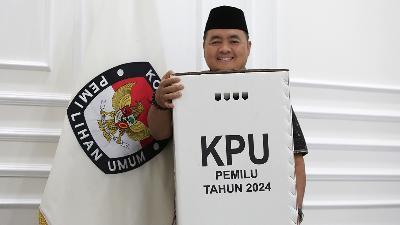
General Election Commission Chair, Mochammad Afifuddin: There is a deficit of trust in the KPU
KPU Chair Mochammad Afifuddin on turbulence within his institution following the dismissal of Hasyim Asy’ari, and the Constitutional Court’s decision on the regional head elections.
Interview Monday, October 21, 2024 Edition
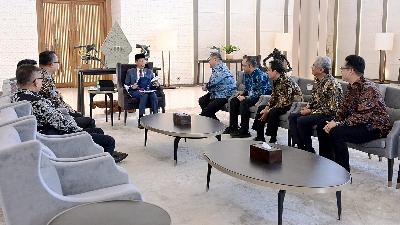
KPK Leadership Candidates from State Officials
Various parties from the National Police Chief to the State Palace are accused of interfering in the KPK leadership candidates selection process. The candidates are divided into four clusters.
Law Monday, October 14, 2024 Edition
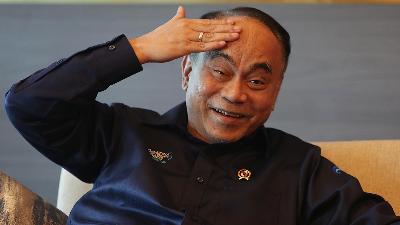
Minister of Communication and Informatics Budi Arie Setiadi: I don’t want it to be in the form of an ad
Tempo’s interview with Minister of Communication and Informatics Budi Arie Setiadi about Jokowi’s campaign before the end of his tenure.
Cover Story Monday, October 14, 2024 Edition

Major Spending on Jokowi’s Glorification
As President Jokowi's term neared its end, instructions were given to promote the government's achievements, and billions of rupiah in contracts were offered to the media.
Cover Story Monday, October 14, 2024 Edition
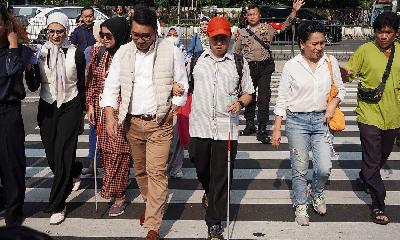
Promises from Jakarta Governor Candidates
Jakarta governor and deputy governor candidates promise improvements in inclusive public transportation.
Special Report Monday, October 14, 2024 Edition
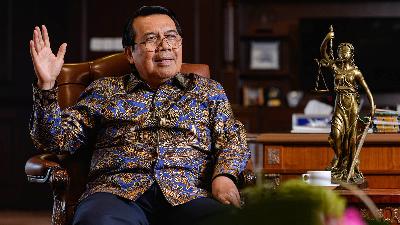
Supreme Court Chief Justice Muhammad Syarifuddin: The Election of a New Chief is Always a Hot Topic
Supreme Court Chief Justice Muhammad Syarifuddin uses artificial intelligence to handle cases. Case brokers continue to be a threat.
Law Monday, October 7, 2024 Edition
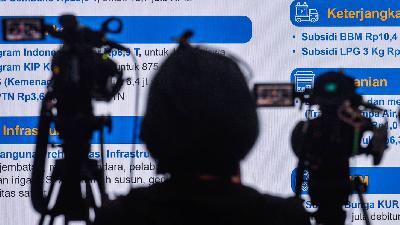
Rocky Roads for Media Companies
Media companies are experiencing upheaval due to the rapid changes in the business landscape. The industry is moving towards a new equilibrium.
Economy Monday, October 7, 2024 Edition

Arbitrary Changes of Elected Candidates
Using a variety of pretexts, the political parties replace elected legislative candidates. This is a betrayal of the people’s choice.
Opinion Monday, September 30, 2024 Edition
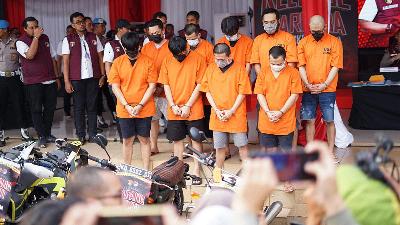
Drug Syndicate in Tarakan Prison
Hendra Sabarudin’s drug network distributed methamphetamine from Tarakan prison starting in 2017, allegedly aided by police and prison guards.
Law Monday, September 30, 2024 Edition

How Dredging Sea Sand and Sediments Impact Marine Ecosystem
The government plans to dredge 17.6 billion cubic meters of sea sand and sediment, altering the landscape and destroying marine life.
Cover Story Monday, September 30, 2024 Edition
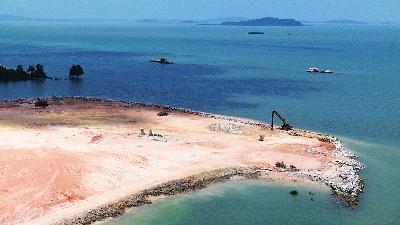
Sea Sand Sedimentation Locations
The government designated a number of areas as zones for cleaning sediment and sea sand.
Cover Story Monday, September 30, 2024 Edition

Behind the Coup in Kadin
Anindya Bakrie ousts Arsjad Rasjid from the position of General Chair of the Indonesian Chamber of Commerce and Industry (Kadin). The Palace’s support shifted.
Economy Monday, September 23, 2024 Edition
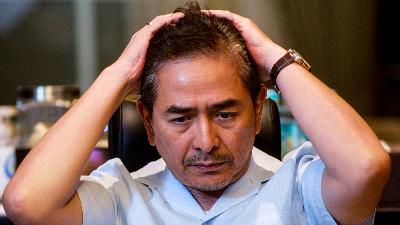
Arsjad Rasjid: Kadin Was Like a Political Party
Anindya Bakrie ousted Arsjad Rasjid as the Chair of the Indonesian Chamber of Commerce and Industry (Kadin). The organization is becoming like a political party and enjoys large funds coming in from overseas.
Interview Monday, September 23, 2024 Edition

Jakarta Gubernatorial Candidates Going After the Anies’ Voter Base
Gubernatorial candidates are trying to win over the votes of Anies Baswedan supporters in the Jakarta regional election. Jokowi reportedly shifted his support.
National Monday, September 16, 2024 Edition
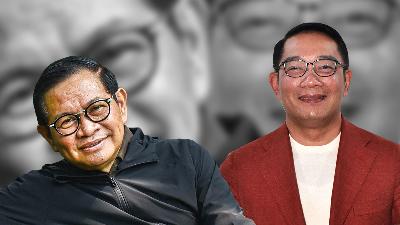
Gubernatorial Candidates Vying for Jakarta’s Votes
Pramono Anung and Ridwan Kamil shed light on the dynamics surrounding their appointments as Jakarta gubernatorial candidates.
Interview Monday, September 16, 2024 Edition
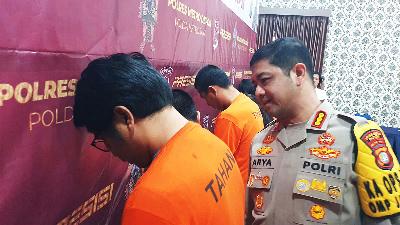
The Java-Bali Baby Trafficking Syndicate
Police uncover baby trafficking syndicate operating in Java-Bali since 2023. Five babies were already sold.
Law Monday, September 16, 2024 Edition
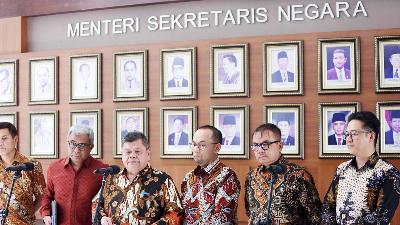
Conflict of Interest of KPK Leadership Candidates
News summary on the conflict of interest of KPK leadership candidates and 44 ministries in Prabowo’s government.
News Capsule Monday, September 16, 2024 Edition
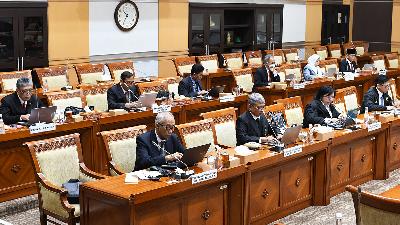
Reasons the DPR Rejected All Supreme Court Justice Candidates
Commission III of the House of Representatives rejected all the Supreme Court judge candidates proposed by the Judicial Commission. The rejection allegedly was due to their favored candidate failed to pass.
Law Monday, September 9, 2024 Edition
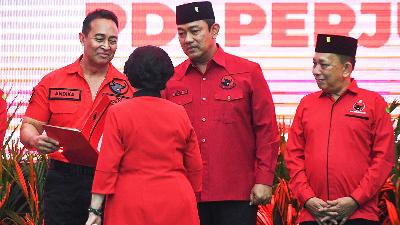
PDI-P Challenges Candidates Supported by the Palace
The Indonesian Democratic Party of Struggle (PDIP) strives to counter candidates supported by the Palace. It is an early projection for the 2029 General Elections.
Cover Story Monday, September 2, 2024 Edition
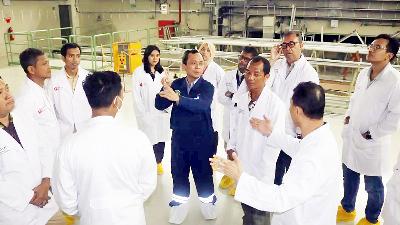
Nuclear Reactors to Support De-dieselization Program
BRIN is designing the Peluit-40 nuclear reactor to replace diesel power plants, claiming it to be safer.
Science & Technology Monday, August 26, 2024 Edition
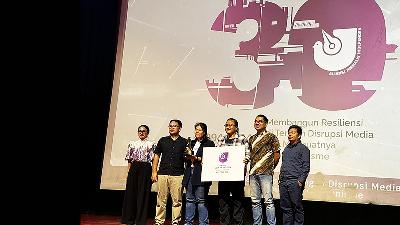
The Fifth Udin Award for Tempo
The Bocor Alus Politik podcast receives the Udin Award that we dedicate to our viewers and readers.
Letter From Monday, August 19, 2024 Edition
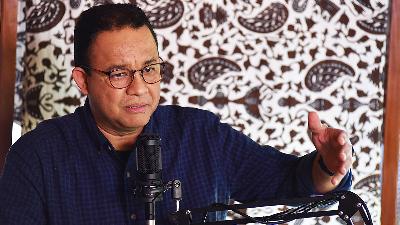
Anies Baswedan on His Candidacy in the Jakarta Gubernatorial Election
An exclusive Tempo interview with Anies Baswedan regarding his chances to run in the Jakarta regional head election.
Cover Story Monday, August 12, 2024 Edition

The Uncontested Election Scenario to Block Anies Baswedan’s Candidacy in the Jakarta Gubernatorial Election
Jokowi and Prabowo’s coalition are maneuvering to thwart Anies Baswedan’s candidacy in the Jakarta regional head election. Cabinet posts are being offered as inducements.
Cover Story Monday, August 12, 2024 Edition

The Mysterious Mr. T of Online Gambling Business Syndicate
Tommy Hermawan Lo’s name emerges following the mention of Mr. T in online gambling that involves human trafficking case. He is a director at a casino management company.
Law Monday, August 12, 2024 Edition
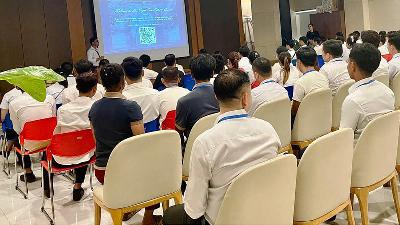
Indonesian Migrant Workers in Online Gambling and Scamming Businesses in Cambodia
Victims of human trafficking for online gambling and scamming in Cambodia claimed of being forced to work 12-hour shifts and being beaten. Recruitment is still ongoing.
Law Monday, August 12, 2024 Edition

The Formula to Oppose Jokowi’s Candidates
The battle in the presidential election is set to continue in regional head elections. The PDI-P is determined to challenge President Joko Widodo’s candidates.
Cover Story Monday, August 5, 2024 Edition
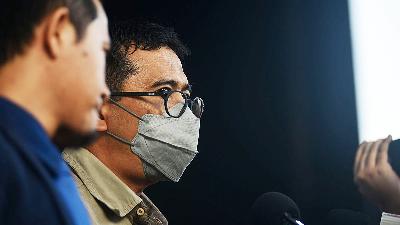
Former Head of the Health Crisis Center, Health Ministry, Budi Sylvana: I Was Considered as the Troublemaker
Personal protective equipment corruption suspect, Budi Sylvana, denied inflicting up to Rp300 billion of losses to the state. He revealed the roles of other officials in the case.
Law Monday, August 5, 2024 Edition
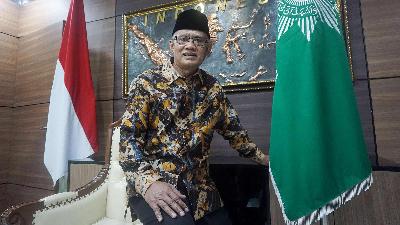
Haedar Nashir of Muhammadiyah: God Willing, Muhammadiyah is Already Satisfied
Muhammadiyah follows Nahdlatul Ulama’s step to accept mining concession offer from the government. Muhammadiyah General Chair Haedar Nashir explains about it.
Economy Monday, August 5, 2024 Edition
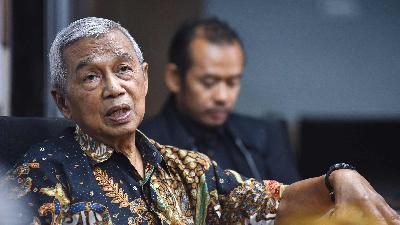
Busyro Muqoddas of Muhammadiyah: We Have Studies Rejecting Mining
Muhammadiyah accepts the government’s mining concession offer. Many members are against it. Busyro Muqoddas, Chair of Muhammadiyah’s Law and Human Rights Council explains.
Economy Monday, August 5, 2024 Edition

Behind Muhammadiyah’s Acceptance to the Offer of Mining Concession
Muhammadiyah cadres and administrators are divided in their response to the mining concession. There are whispers from the government and the entrepreneurs.
Economy Monday, August 5, 2024 Edition
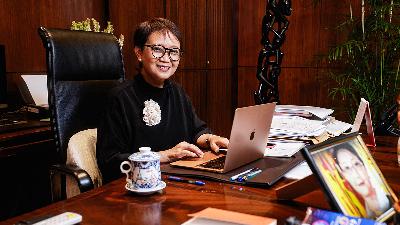
Retno Marsudi: Our Role Is to Establish Bridges
Retno Marsudi dismissed the idea that the government is merely meddling foreign affairs. She emphasized that Indonesia is a trusted partner on the international stage.
Special Report Monday, July 29, 2024 Edition
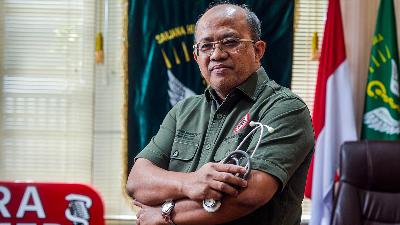
IDI Chief: Foreign Doctors Cannot Enter Indiscriminately
Chair of IDI, Mohammad Adib Khumaidi, discusses the polemic over the plan to allow foreign doctors to practice in Indonesia. He emphasizes stringent regulations are necessary.
Interview Monday, July 22, 2024 Edition
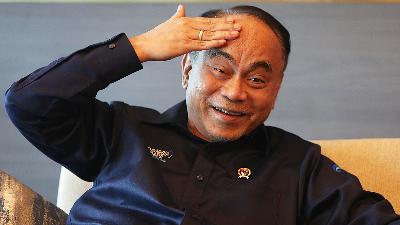
Communication and Informatics Minister Budi Arie Setiadi: This Attack Has Paralyzed Us
Communication and Informatics Minister Budi Arie explains the cyberattack on the Temporary National Data Center. He dismisses allegations of negligence.
Interview Monday, July 1, 2024 Edition

Infinite Earth’s Response Regarding Ecosystem Restoration
Infinite Earth responds regarding the revocation of Rimba Raya Conservation’s ecosystem restoration permit.
Letters Monday, July 1, 2024 Edition

Lancing the Tokopedia Boil
There will be a wave of layoffs at Tokopedia as a result of inefficient practices. This is the result of government policy rife with conflicts of interest.
Opinion Monday, June 24, 2024 Edition
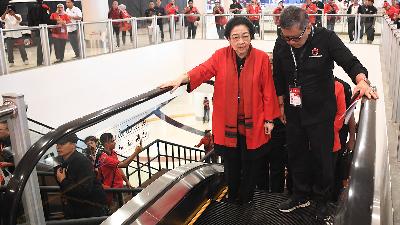
Holding Back Criticism against the President
The PDI-P is preparing to replace Hasto Kristiyanto after he was questioned by the KPK in the Harun Masiku case. They are wary of the Palace’s interference.
Cover Story Monday, June 24, 2024 Edition
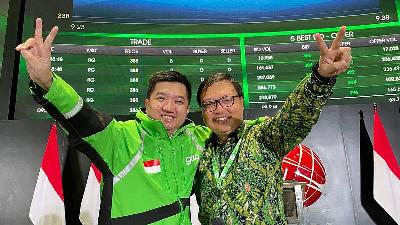
Power Shifts in GoTo and Tokopedia
The founders of GoTo and Tokopedia sold their shares. New investors now have control of ownership.
Economy Monday, June 24, 2024 Edition

Behind Tokopedia's Mass Layoffs
Tokopedia made significant cuts in its workforce following its business consolidation with TikTok. A consequence of inefficient business operation.
Economy Monday, June 24, 2024 Edition

Muhammadiyah’s Hundred Trillion Rupiah Businesses
Muhammadiyah’s business networks cover various sectors, from education to financial services. It seeks to create a closed economic ecosystem.
Economy Monday, June 17, 2024 Edition

Behind Muhammadiyah's Funds Withdrawal from Bank Syariah Indonesia
Muhammadiyah withdrew trillions of rupiah from Bank Syariah Indonesia. It was the accumulation of various problems, from operational matters to appointment of commissioners.
Economy Monday, June 17, 2024 Edition
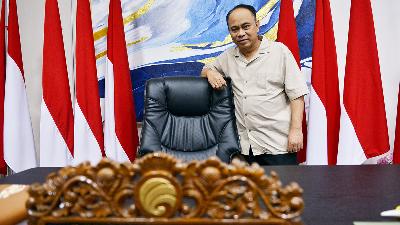
Communication and Informatics Minister Budi Arie Setiadi: The Press Cannot Be Stifled.
Communication and Informatics Minister Budi Arie Setiadi talks about the polemic over the planned revision of the Broadcasting Law and the Starlink Internet service.
Interview Monday, May 27, 2024 Edition
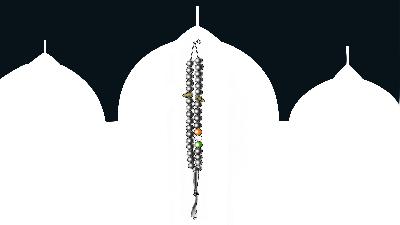
Narendra Modi
Narendra Modi is likely to serve his third term as the Prime Minister of India. His campaigns are based on populism and religion.
Marginalia Monday, May 20, 2024 Edition

Dark Clouds over Online Credit Business
The fintech lending business is increasingly losing steam. Returns continue to decline while fund owners are opting for other investment portfolios.
Economy Monday, May 13, 2024 Edition
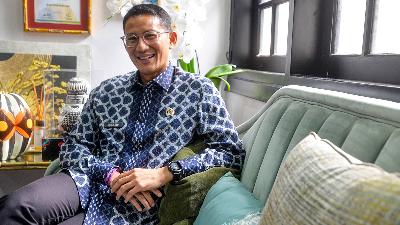
Sandiaga Uno: Tourism fees will not be levied on plane tickets
Tourism and Creative Economy Minister Sandiaga Salahuddin Uno assures that the tourism fee will not be imposed on plane tickets.
Interview Monday, May 6, 2024 Edition
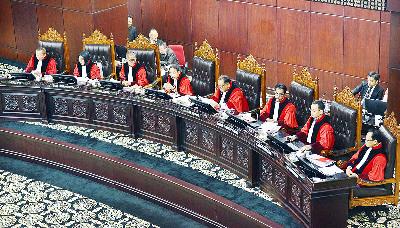
Behind the Verdict of the Constitutional Court
The Constitutional Court rejected lawsuits disputing the results of the 2024 presidential election. The option of disqualifying Gibran was discussed in a meeting of the judges.
Cover Story Monday, April 29, 2024 Edition
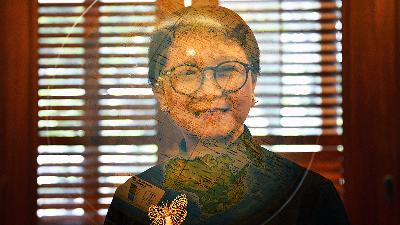
Retno Marsudi: There’s no intention of establishing diplomatic relations with Israel
Foreign Affairs Minister Retno Marsudi explains the Gaza war and the Iran-Israel conflict with its impact on Indonesia’s economy.
Interview Monday, April 29, 2024 Edition
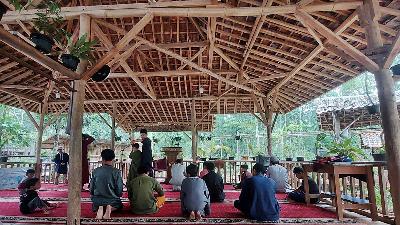
Many Islamic Boarding Schools Do Not Have Licenses
Islamic boarding schools (pesantren) cannot be closed even if they do not have a license from the government. There is no protection from the Ministry of Religious Affairs if legal problems arise.
Law Monday, April 15, 2024 Edition
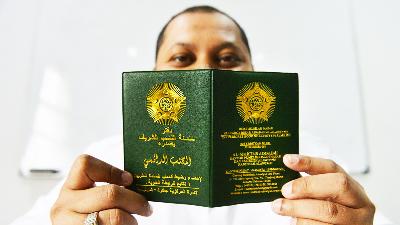
Maktab Daimi, Guardians of the Prophet Muhammad’s Family Line
The Rabithah Alawiyah organization is in charge of recording and preserving the line of descent of the Alawiyyin in Indonesia. Seven books from Yemen serve as their guide.
Cover Story Thursday, April 4, 2024 Edition
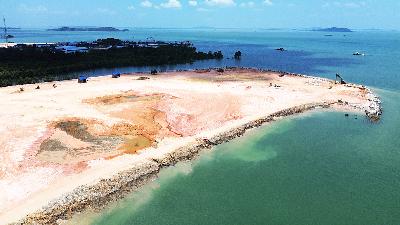
Who Benefits from Regulations on Marine Sediment Utilization
Several companies are applying for permits to utilize sediment, including sea sand. Large corporations use landfills for land reclamation areas.
Economy Monday, April 1, 2024 Edition

Ignoring the Rights of Indigenous People
Indigenous people are taking legal action against the President and the DPR for delaying deliberations of a bill. It has taken second place to the interests of investors.
Opinion Monday, March 25, 2024 Edition
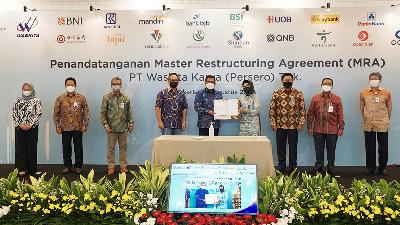
State Banks Stop Loans to State Construction Companies amid Credit Crunch
State banks stop distributing loans to state construction companies. Government assignment projects are burdening banks.
Economy Monday, March 25, 2024 Edition
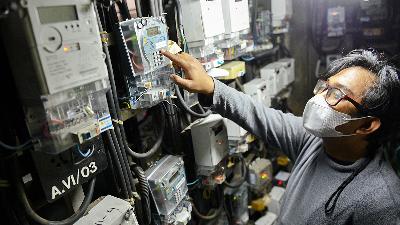
Balancing Energy Subsidies and Free Lunch Program in Indonesia
The government opens the option of switching energy subsidies for the free lunch program. This threatens poor households.
Economy Monday, March 11, 2024 Edition

Leveling Up the National Game Industry with Special Funding Initiatives
The government issues a regulation to develop the game industry. There will be a special funding agency.
Economy Monday, March 11, 2024 Edition
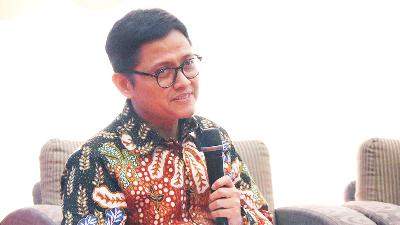
PPATK Director of Law, Fithriadi Muslim: Regulations on Assets Confiscation are Limited
Discussions of the Asset Recovery Draft Law is stagnating in the DPR. It is key to preventing money laundering.
Law Monday, February 12, 2024 Edition

The Questions behind TikTok and Its Tokopedia Acquisition
TikTok Shop’s acquisition of Tokopedia changes the Indonesian business map. It is not clear how small and medium enterprises will be protected.
Opinion Monday, January 15, 2024 Edition
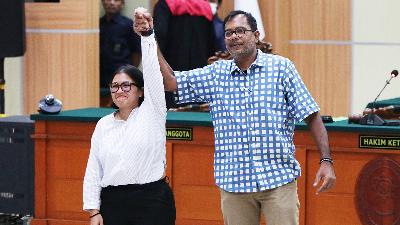
Haris Azhar and Fatia Maulidiyanti Exonerated
The prosecutor persists in filing a cassation against the acquittal of Haris Azhar and Fatia Maulidiyanti. It is a threat to the freedom of expression.
Law Monday, January 15, 2024 Edition

Patrick Walujo’s Explanation on the Sale of Tokopedia's Shares to Tiktok
GoTo CEO Patrick Waluyo reveals the story behind the selling of Tokopedia shares to TikTok. How much profit did GoTo get?
Economy Monday, January 15, 2024 Edition

The Story Behind Tiktok's Purchase of Tokopedia Shares
The integration of TikTok Shop with Tokopedia will reinforce GoTo’s business. Indonesia’s e-commerce competition landscape is changing.
Economy Monday, January 15, 2024 Edition

The Demagogic Campaigns of the Presidential Candidates
The presidential and vice-presidential candidates are relying entirely on gimmicks to exploit the emotions of the people. This moves the campaign away from substantive discussions.
Opinion Monday, January 8, 2024 Edition

2024 Elections: Presidential Candidates’ Gimmick Battle to Garner Young Voters
Do the presidential candidates succeed in attracting young voters with social media gimmicks?
National Monday, January 8, 2024 Edition
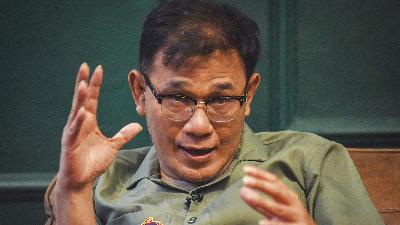
Budiman Sudjatmiko: I’m Not Motivated by Money
Budiman Sudjatmiko persuades other activists to support Prabowo Subianto. He claims he is not motivated by money.
Cover Story Monday, January 1, 2024 Edition
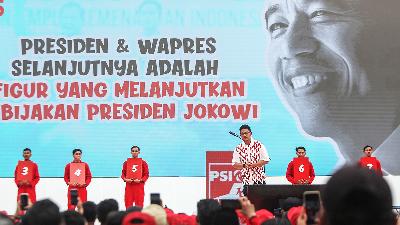
How The PSI Find Its Funding
How does the Indonesian Solidarity Party get its funding? Is the aid from conglomerate bosses like Djarum’s owner true?
Cover Story Monday, January 1, 2024 Edition

Moeldoko’s Right to Reply Regarding His Alleged Intervention on Wuling EV Battery Chargers
Presidential Chief of Staff Moeldoko is writing regarding his alleged interference in electric vehicle policy over Wuling’s SNI certification.
Letters Monday, January 1, 2024 Edition

A Radical Reform Needed for KPK
Post-Firli Bahuri, the Corruption Eradication Commission (KPK) is still walking backward toward its grave. A radical reform is needed.
Opinion Monday, December 25, 2023 Edition

Reflecting on the Presidential Candidates’ Campaign Teams
The presidential candidates’ campaign teams are an illustration of the type of government they would form if elected. Businesspeople have a central role.
Opinion Monday, December 18, 2023 Edition
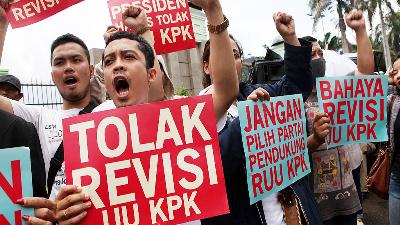
Now That the KPK is Subordinate to the President
The Corruption Eradication Commission is no longer independent ever since it became part of the executive body. The fruit of the revised KPK Law.
Cover Story Monday, December 18, 2023 Edition
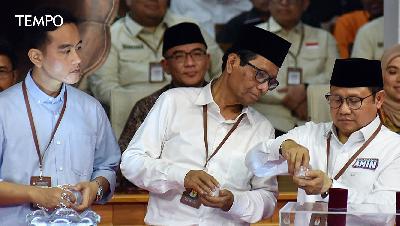
The Bogus Presidential Candidate Debates
In Indonesia, presidential candidate debates are planned as bogus performances. There is no in-depth discussion of the issues.
Opinion Monday, December 11, 2023 Edition

The Poor State Auditor Selection Process
Yet again, a member of the Supreme Audit Agency is involved in corruption. The system for selecting these state auditors is very poor.
Opinion Monday, December 4, 2023 Edition
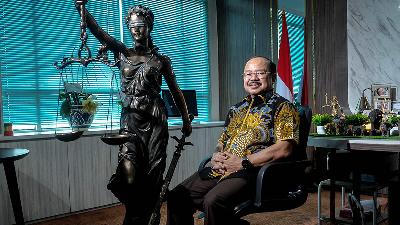
Why Judicial Commission Cannot Oversee Constitutional Judges
Judicial Commission Chairman Amzulian Rifai explains the boundaries of his authority in dealing with judges, and the Judicial Commission Bill.
Interview Monday, December 4, 2023 Edition
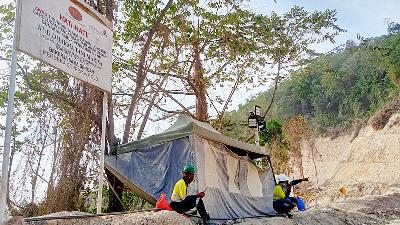
Dispute between Sandiaga Uno’s Company with Local Gold Miners
Sandiaga Uno and Garibaldi Thohir’s company is in conflict with local miners. The amount of compensation is considered inadequate.
Law Monday, November 20, 2023 Edition
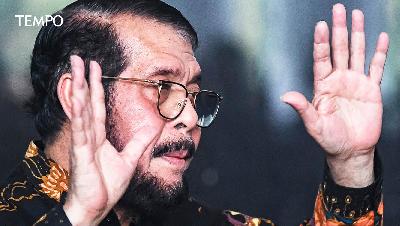
For Democracy, Gibran Should Resign as Vice-Presidential Candidate
Having no democratic legitimacy, Gibran Rakabuming Raka must withdraw his candidacy for the vice-presidency.
Opinion Monday, November 13, 2023 Edition
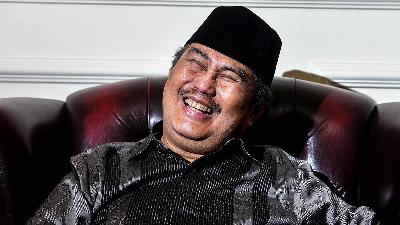
Jimly Asshiddiqie: the Game is Over
Tempo's special interview with MKMK Chairman Jimly Asshiddiqie regarding the dismissal of Anwar Usman as Chief Justice of the Constitutional Court.
Cover Story Monday, November 13, 2023 Edition

The Challenges of Funding Early Retirement of Coal Power Plants
The program to put coal-fired power plants (PLTU) into early retirement is hampered by funding problems. As grants are stuck, the state budget must be disbursed.
Economy Monday, November 6, 2023 Edition

Cardinale Nipote
Nepotism is the close relative of corruption and dictatorship. The Indonesian Independence Proclamation places nepotism as a threat to independence.
Marginalia Monday, November 6, 2023 Edition
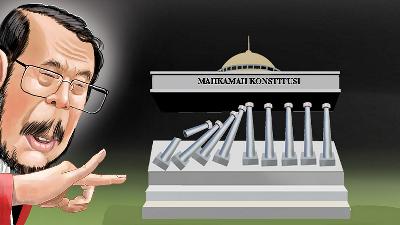
Chief Justice Anwar Usman’s Maneuvers to Lower the Age Limit of Presidential-Vice-Presidential Candidates
Constitutional Court Chief Justice Anwar Usman is reportedly maneuvering to lower the minimum age limit for presidential and vice-presidential candidates, paving the way for Gibran.
Cover Story Monday, October 23, 2023 Edition
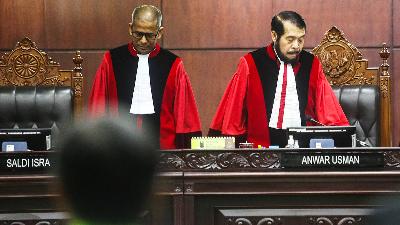
Constitutional Court’s Verdict on the Age Limit for Presidential and Vice-Presidential Candidates
The Constitutional Court reportedly already made a decision in favor of a lawsuit regarding the minimum age requirement for presidential and vice-presidential candidates. The issue is rife with conflicts of interest.
Cover Story Monday, October 16, 2023 Edition

A Misunderstanding of Carbon Trading
Carbon trading is simply a way to mitigate climate change. The main aims are the energy transition and environmental protection.
Opinion Monday, October 9, 2023 Edition

Four Ways of Carbon Trading at Carbon Exchange
The Indonesian Stock Exchange established four carbon trading mechanisms. There were 27 transactions in three schemes in the initial sale.
Economy Monday, October 9, 2023 Edition
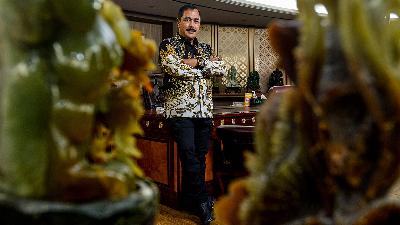
Immigration and Penitentiary Affairs Minister Agus Andrianto: There Are ‘Kingdoms’ in Prisons
Immigration and Penitentiary Affairs Minister Agus Andrianto on the issues ranging from the inmate escapes from Salemba Detention Center to Mary Jane’s repatriation.
Interview Monday, December 2, 2024 Edition
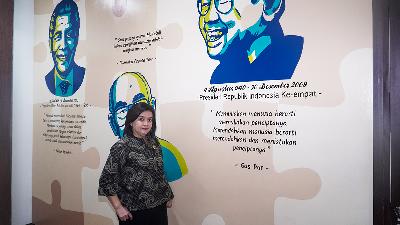
National Commission on Human Rights Chair: Human Rights Enforcement Cannot Rely Solely on Political Maneuvers
National Commission on Human Rights (Komnas HAM) Chair Atnike Nova Sigiro on human rights enforcement in the Prabowo Subianto era.
Interview Monday, November 18, 2024 Edition

Protectors of Online Gambling Sites at the Communication and Digital Affairs Ministry
The number of people suspected of protecting online gambling sites increases to 18. Employees of the Communication and Digital Affairs Ministry are involved.
Cover Story Monday, November 18, 2024 Edition

Minister of Communication and Digital Affairs Meutya Hafid: Online Gambling Site Blocking Continues
The Communication and Digital Affairs Ministry is tidying up house now that 10 of its employees are accused of participating in online gambling. Their flow of cash is being scrutinized.
Cover Story Monday, November 18, 2024 Edition
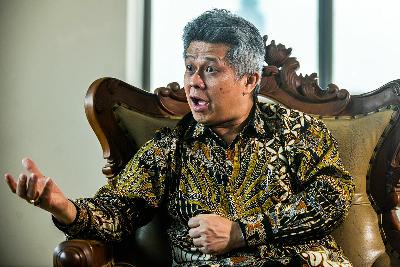
Chair of the Indonesian Bishops’ Conference: The Church is Never Neutral
Chair of the Presidium of the Indonesian Bishops' Conference (KWI) Monsignor Antonius Subianto Bunjamin spoke about the preparations for Pope Francis’ visit.
Interview Monday, September 2, 2024 Edition
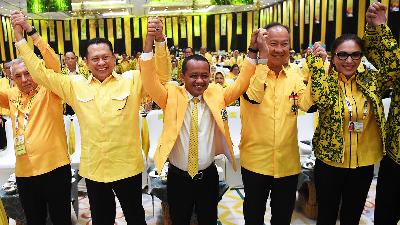
The Rise of Bahlil Lahadalia as Golkar’s General Chair
Jokowi is believed to have intervened in making Bahlil Lahadalia general chairperson of the Golkar Party.
Cover Story Monday, August 26, 2024 Edition

KPK Deputy Chair: Do Not Expect Too Much from the KPK
KPK Deputy Chair Alexander Marwata talks about the sting operations and the independence of the anti-graft commission.
Interview Monday, August 26, 2024 Edition
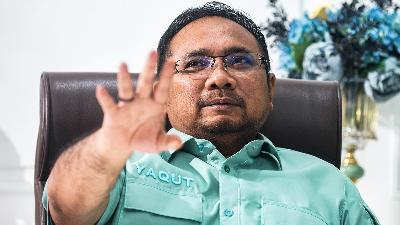
Religious Affairs Minister Yaqut Cholil Qoumas Stands Firm on Special Haj Quota Controversy
The DPR and the Religious Affairs Minister disagree regarding an additional quota of haj pilgrims. The DPR deems Yaqut Cholil Qoumas has broken the law.
Cover Story Monday, July 15, 2024 Edition

Finding Dairy Cattle for the Free Milk Program
The government is asking businesses to provide dairy cows for the free milk and lunch program.
Cover Story Monday, May 13, 2024 Edition
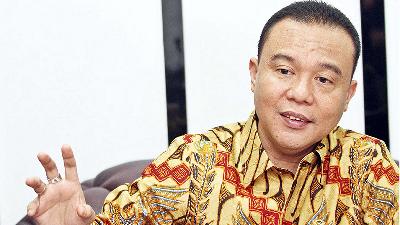
Gerindra Chairman on the Forming of Prabowo’s Cabinet
Gerindra Party Executive Chairman Sufmi Dasco Ahmad gives his explanation about the preparation of Prabowo Subianto’s cabinet ministers.
Cover Story Monday, March 25, 2024 Edition

Press Council Chair Explains Publisher Rights
Press Council Chair Ninik Rahayu explains the Presidential Regulation on Publisher Rights for media business sustainability.
Interview Monday, March 18, 2024 Edition

Right of Reply of The Ministry of Religious Affairs and The Ministry of Agriculture
Ministry of Religious Affairs and Ministry of Agriculture’s right of reply on support for presidential candidates.
Letters Monday, February 26, 2024 Edition

General Election Commission Chair, Hasyim Asy’ari: I Have to Acknowledge There are Still Problems
KPU Chair Hasyim Asy'ari explains about a host of problems during the 2024 elections as well as the ethical violation KPU committed in Gibran’s nomination registration.
Interview Monday, February 26, 2024 Edition

Unpaid Payroll for Foreign Affairs Ministry’s Staffers
Former government employees at the Foreign Affairs Ministry are demanding the disbursement of unpaid wages. How did it come to happen?
Letters Monday, August 14, 2023 Edition

Building a Fair Relationship between Publishers and Platforms
The relationship between digital platforms and publishers needs to be regulated to make it fairer. These regulations need to be discussed in the open.
Opinion Monday, February 20, 2023 Edition
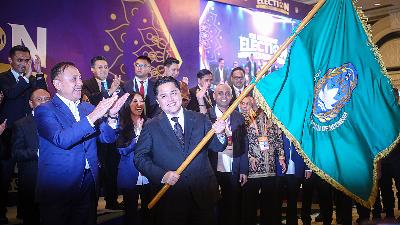
Erick Thohir, General Chairman of PSSI
New Capsules ranging from Erick Thohir’s rise as PSSI General Chairman to the haj pilgrimage cost increase.
News Capsule Monday, February 20, 2023 Edition

Letter to Supreme Court Chairman
An Indonesian migrant worker is in a court dispute to the level of cassation. He sends an open letter to the Chairman of the Supreme Court.
Letters Monday, June 13, 2022 Edition
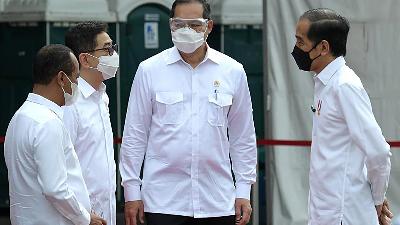
The Palace’s Hands in KADIN’s Chair Election
Election for the Indonesian Chamber of Commerce and Industry chairman turned heated. The Palace’s alleged support for one of the candidates puts pressures on voters.
Cover Story Friday, June 11, 2021 Edition
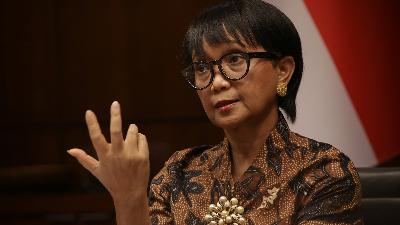
Minister of Foreign Affairs Retno Marsudi: We Had to Work in Silence
ASEAN leaders finally came to a number of consensus, such as finding a peaceful solution through dialogue and sending a special envoy to Myanmar. Further steps are still needed. Tempo interviewed Indonesian Minister of Foreign Affairs, Retno marsudi.
Asean & Beyond Monday, May 3, 2021 Edition

Royalty Distribution is Not Yet Equal or Fair
Seasoned musician Candra Darusman was again at the center of efforts to fight for the welfare of musicians and songwriters. As the chair of Indonesian Musician Union Federation (Fesmi), his input was solicited for the formulation of Government Regulation No. 56/2021 regarding the management of music royalties. The regulation inked by President Joko Widodo on March 30 not only governs parties responsible to pay royalties but also lays down the basis for the establishment of a data center as well as a music information system. Before he headed Fesmi in 2019, Candra represented Indonesia at World Intellectual Property Organization for 18 years, nine years respectively at the organization’s offices in Switzerland and Singapore. After decades of being active in intellectual property rights protection, Candra is determined to improve the lives of musicians and songwriters by, among others, improving royalty management amid new challenges in the digital era.
Interview Monday, May 3, 2021 Edition

Clarification of Coordinating Ministry for Maritime Affairs & Investment
Coordinating Ministry for Maritime Affairs and Investment conveys objection to the report of Dragons in Trouble in Tempo English of January 4 edition.
Letters Monday, January 11, 2021 Edition

Fair Carbon Trading
The government is drawing up a presidential regulation on the economic value of carbon. This regulation must be fair and must force all business sectors to reduce emissions.
Opinion Monday, January 4, 2021 Edition

The Last Perkenier of Banda Naira
NUTMEG, the main commodity of the Banda Naira islands, had its heyday in the 16th century. The Dutch, through the Dutch East-Indies Company (VOC), even sent 37 perkeniers (plantation owners) from the Netherlands to Banda to manage the plantations, in order to cover the nutmeg monopoly supply for Europe’s market. Only one descendant remains of the 16th-century perkeniers: Pongky Erwandi van den Broeke, who manages 12.5 hectares of land. He was the victim of unrest in 1999.
Interlude Monday, December 14, 2020 Edition

Taruna Ikrar, Chairman, Medical Council: No Need to be Afraid of Foreign Doctors
It is only a matter of time for foreign doctors to start work in Indonesia. According to Chairman of the Medical Council of the Indonesian Medical Council (KKI), Taruna Ikrar, sooner or later, Indonesian doctors across the archipelago must prepare themselves for tough competition.
Interview Monday, November 16, 2020 Edition
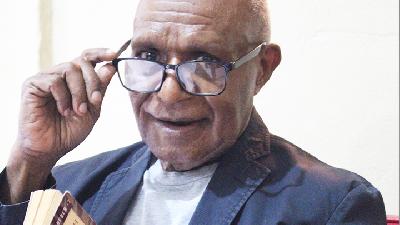
Rev. Benny Giay, Chairman of Synod of Indonesian Gospel Tabernacle Church in Papua: Do We Have to Change the Color of Our Skin?
Chairman of the Synod of Indonesian Gospel Tabernacle Church (Kingmi) Church in Papua, Rev. Benny Giay regretted the conviction of seven Papuan political prisoners who were tried for treason.
Interview Tuesday, June 23, 2020 Edition
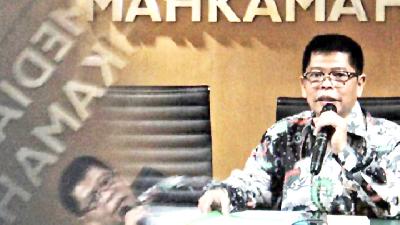
Chief of the Legal and Public Relations Bureau, Supreme Court, Abdullah: No Plenary Yet Prepared to Choose New Chair
Supreme Court Chairman Hatta Ali turns 70 years on April 7.
Law Tuesday, March 24, 2020 Edition
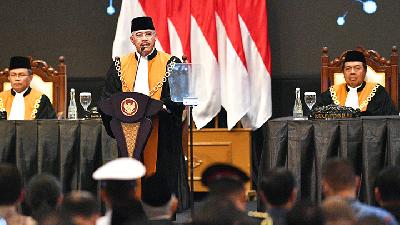
The Chairman Comes of Age
Set to retire in early April, Supreme Court Chairman Hatta Ali has not yet ordered the formation of a committee to select his successor. He was caught on camera visiting a hotel project in West Nusa Tenggara.
Law Tuesday, March 24, 2020 Edition

Ciputra’s Love Affair with the Arts
Ciputra’s love affair with the fine arts was undying. He was a master in creating beautiful housing estates.
Obituari Tuesday, December 3, 2019 Edition
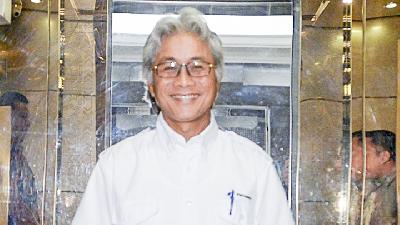
SKK Migas Chairman Dwi Soetjipto: If there are many options, there has to be a tender
TUAL City was the last destination for the Upstream Oil and Gas Regulatory Special Task Force (SKK Migas) Chairman Dwi Soetjipto in his four-day visit to Maluku Province two weeks ago.
Cover Story Monday, November 18, 2019 Edition
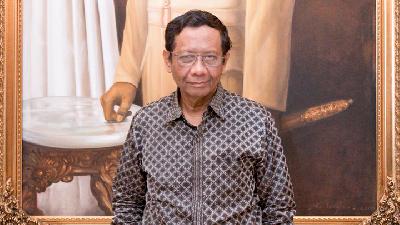
Mohammad Mahfud Md., Coordinating Minister for Political, Legal and Security Affairs: Separatism Is Worse Than Radicalism
LAST Wednesday, October 23, was a long day for Mohammad Mahfud Md. He was at the Presidential Palace bright and early to be sworn in as the coordinating minister for political, legal and security affairs.
Interview Tuesday, October 29, 2019 Edition

Response from the Ministry of Agrarian Affairs and Spatial Planning/National Land Agency
WITH regards to the letter from Mr. Dicky as published in the Letters column of Tempo magazine’s August 6-12, 2019 issue, Ministry of Agrarian Affairs and Spatial Planning/National Land Agency (ATR/BPN) would like to convey that:
Letters Tuesday, August 13, 2019 Edition
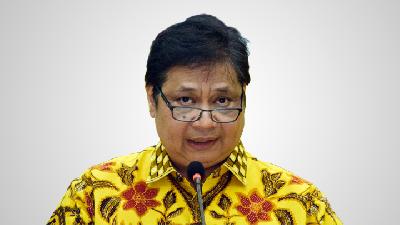
Golkar Party General Chairman Airlangga Hartarto: Support Continues to Roll in
Considered to have failed by some party cadres, Golkar Party General Chairman Airlangga Hartarto explained the situation in his party to Tempo in South Jakarta on Tuesday night, July 30.
National Tuesday, August 6, 2019 Edition

Police Halts Case of 212 Alumni Chairman
THE Surakarta city police in Central Java has issued an official letter halting the legal process against Slamet Maarif, chairman of the 212 Alumni Brotherhood.
National Tuesday, March 5, 2019 Edition

Airfare Affair
Domestic airlines succumbed to consumers’ demands for lower ticket prices. The Business Competition Supervisory Commission began to investigate possibility of rule violations.
Economy Tuesday, January 22, 2019 Edition

I was ordered by the general chairman
I was ordered by the general chairman
Law Tuesday, September 25, 2018 Edition
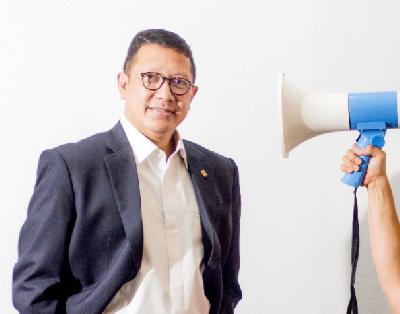
Lukman Hakim Saifuddin, Religious Affairs Minister: How can we possibly disallow Adhan?
Religious Affairs Minister Lukman Hakim Saifuddin once again found himself the target of scorn.
Interview Monday, September 10, 2018 Edition
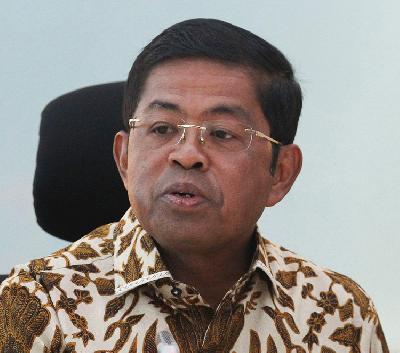
Former Social Affairs Minister, Idrus Marham: I did nit receive the money
IDRUS Marham made quite a surprise by resigning from his position as Social Affairs Minister, last Friday afternoon, at the Presidential Palace.
Law Tuesday, August 28, 2018 Edition
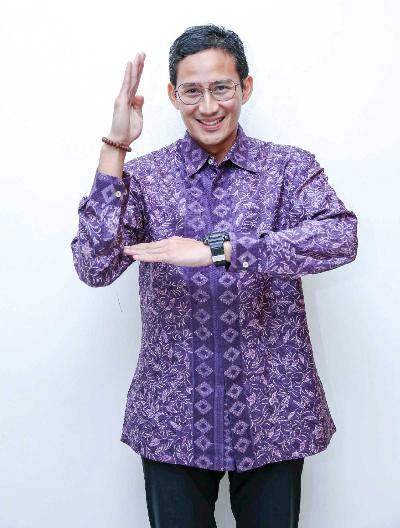
Sandiaga Salahuddin Uno, Chair of Gerindra Party's 2019 Presidential Campaign Team: Prabowo No Longer Has Any Ambition
SANDIAGA Salahuddin Uno accepted a new duty last February: becoming Chair of the Gerindra Party 2019 Presidential Election Campaign Team. Sandiaga, 48, was personally appointed by Prabowo Subianto, the party's general chair.
Interview Monday, May 7, 2018 Edition

Agus Rahardjo, Corruption Eradication Commission Chairman: We Will Issue a New Investigation Order
BEING reported for alleged graft- twice within a week- does not help Corruption Eradication Commission (KPK) Chairman Agus Raharjo’s mood. In early September, the anti-graft agency chief was reported to the Attorney-General’s Office (AGO), as well as the National Police’s criminal investigation unit.
Interview Monday, October 16, 2017 Edition

Chairman of the Indonesian Ulama Council (MUI) KH Ma'ruf Amin: We've always been close with the government
Two weeks ago, MUI Chairman Kiai Haji Ma'ruf Amin issued a fatwa (ruling) and guidelines on social media interaction at the communication and information ministry, making it the first ever fatwa announced at a government institution in the MUI's 42-year history.
Interview Tuesday, June 20, 2017 Edition

Tjahjo Kumolo Home Affairs Minister: I'm 90 percent sure who the e-KTP mastermind is
The electronic ID card (e-KTP) corruption case is giving Home Affairs Minister Tjahjo Kumolo a big headache. For the past year and a half, some 68 of his subordinates have been questioned by the Corruption Eradication Commission (KPK). "This has clearly affected the mental state of the ministry's personnel," said Tjahjo.
Interview Tuesday, March 28, 2017 Edition

Laode Muhammad Syarif, KPK deputy Chairman: This Case is Ongoing
Corruption Eradiation Commission (KPK) deputy chairman Laode Muhammad Syarif said that the the bribery case involving Patrialis was different from previous ones. The KPK's task force did not confiscate cash as evidence. They were only able to seize a voucher exchangeable for foreign currency, a draft of a material review court verdict, and a recording of a conversation. "This is an irregularity," said Syarif, when Tempo interviewed him at his office last week.
What did Basuki ask of Patrialis?
Cover Story Tuesday, January 31, 2017 Edition

Kiagus Ahmad Badaruddin, PPATK Chairman: I Can Take Chaos If It Brings Positive Results
When he was still the inspector-general at the Ministry of Finance three months ago, Kiagus Ahmad Badaruddin, 59, was angered by a report on a sum of Rp3 billion that had been deposited into his wife's account. It shook him, particularly since he was being considered for the position of chairman of the Center for Financial Transactions Reporting and Analysis (PPATK).
That report spread to the Presidential Palace and to the finance ministry. Finance Minister Sri Mulyani, who recommended Badaruddin to be PPATK chief, took a deeper look at the report. "She asked me what the money was all about," recounted Badaraddin, or Badar as he is familiarly known.
Interview Tuesday, January 31, 2017 Edition

Kiagus Ahmad Badaruddin, PPATK Chairman: I Can Take Chaos If It Brings Positive Results
When he was still the inspector-general at the Ministry of Finance three months ago, Kiagus Ahmad Badaruddin, 59, was angered by a report on a sum of Rp3 billion that had been deposited into his wife's account. It shook him, particularly since he was being considered for the position of chairman of the Center for Financial Transactions Reporting and Analysis (PPATK).
That report spread to the Presidential Palace and to the finance ministry. Finance Minister Sri Mulyani, who recommended Badaruddin to be PPATK chief, took a deeper look at the report. "She asked me what the money was all about," recounted Badaraddin, or Badar as he is familiarly known.
Interview Tuesday, January 31, 2017 Edition

Laode Muhammad Syarif, KPK deputy Chairman: This Case is Ongoing
Corruption Eradiation Commission (KPK) deputy chairman Laode Muhammad Syarif said that the the bribery case involving Patrialis was different from previous ones. The KPK's task force did not confiscate cash as evidence. They were only able to seize a voucher exchangeable for foreign currency, a draft of a material review court verdict, and a recording of a conversation. "This is an irregularity," said Syarif, when Tempo interviewed him at his office last week.
What did Basuki ask of Patrialis?
Cover Story Tuesday, January 31, 2017 Edition

Lukman Hakim Saifuddin Religious Affairs Minister: clerics must be certified
In the past few months, the nation has been besieged by cases linked to religion. They range from blasphemy, which tend to emerge intermittently, to banning the public worship of certain faiths and the celebration of religious holy days, which led to the rejection of Tengku Zulkarnain, deputy secretary-general of the Indonesian Council of Ulama (MUI), when he attempted to arrive at Sintang, West Kalimantan, two weeks ago.
Meanwhile, as the influence of hardline mass groups like the Islam Defenders Front (FPI) grows stronger, moderate Islamic organizations like the Nahdlatul Ulama and Muhammadiyah, seem to be distancing themselves from the government. Understandably, the public wonders whether the religious affairs minister is doing his job.
Interview Tuesday, January 24, 2017 Edition

Said Aqil Siro, Nahdlatul Ulama Chairman
The NU will always follow the Constitution
Nahdlatul Ulama (NU) Chairman Said Aqil Siroj was one of the first people President Joko Widodo reached out to following the November 4 mass demonstration. The President conveyed his gratitude to the chairman of the country's largest Islamic mass organization, for his calming statements during the protests against Jakarta Governor Basuki Tjahaja Purnama, for his allegedly blasphemous statements. In fact, just before the protests, the NU had indeed urged all of its memberstotaling more than 40 million peopleto help placate the tension by not being provoked.
In other words, Said and other NU leaders discouraged their members from joining the protests. "In Islam, there is no such thing as a demonstration," explained Said. However, he was critical of the government, saying it was slow in building communications with Islamic mass organizations. Said, 63, said the government should not communicate only when there are conflicts. "I am very happy to be approached and to have my existence acknowledged," Said commented. However, he regretted the President's statement that there were politicians who piggy-backed on the demonstrators during the November 4 protests, for their own particular purposes.
Interview Tuesday, November 15, 2016 Edition

Muliaman Hadad, Chairman Financial Services Authority
Indonesia's economic growth can exceed target
The chairman of the Financial Services Authority (OJK), Muliaman Hadad, 56, is optimistic about the coming year. He believes Indonesia will greet the coming year with growth exceeding the 5.2 percent target set by the government. "We can do it if we harness domestic potential optimally and continue with our reforms and transformation programs to enable investment," said Muliaman.
His views do not reflect those of global economic leaders who met at the annual conference of the World Bank and International Monetary Fund (IMF) in Washington, DC recently, at which Muliaman himself attended. Participants at the meeting proclaimed that the world economy was growing exceedingly slow, taking far too long to recover and benefitted only a handful of people. They concluded that the weakening of the global economy which began in 2014, had yet to recover in the coming year.
Interview Tuesday, October 25, 2016 Edition

Agus Rahardjo KPK Chairman
We need to expose rent-seekers everywhere
Chairman Agus Rahardjo was riveted by the list of US Navy defense equipment, complete with their budget details. The chairman's laptop was accessing the website of the US Navy Secretariat. "Everything that is secret here is very open over there," said Agus, who started his term leading the Corruption Eradication Commission (KPK) in January 2016, in an interview with Tempo last week.
Agus said open access to the US Navy budget details meant corruption on even the smallest item would be noticed. Likewise, he urged citizens to serve as an extension of the KPK to ensure that not a dime of state money goes to corrupt pockets. "Every Indonesian must take part in monitoring," he said. The day before, he spoke with lawmakers at the House of Representatives (DPR) on ensuring the clean use of the state budget.
Interview Tuesday, September 27, 2016 Edition

Cyber Bullies in the Crosshairs
The government and the DPR agreed to categorize cyber bullying as a crime. Some worry the definition could be interpreted unfairly.
Law Tuesday, September 6, 2016 Edition

Awam Prakoso storytelling village Founder
Fairytales help develop children's imagination
Mochamad Awam Prakosa loves little children. He also loves fairytales. In 1999, the 44-year old got laid off from his banking job. He has dedicated his time storytelling from kindergarten to kindergarten ever since.
On May 18, 2009, he launched Kampung Dongeng ('Storytelling Village'), a group dedicated to storytelling in different regions throughout the country, especially at relocation centers in disaster-prone areas. "Children can play and become more purposeful during our events. They're not neglected, and they don't have to resort to go begging in the streets," said Awam, the father of three children.
Outreach Tuesday, June 28, 2016 Edition

Setya Novanto Golkar Party Chairman
Golkar must work with the Government
Setya Novanto announced his support for the government of President Joko Widodo right after he was elected chairman of the Golkar Party for the 2016-2019 term. He made the announcement at the Golkar national convention in Nusa Dua, Bali, last May, saying that his party was oriented towards development for the people, a vision that was in line with the development programs espoused by Jokowi. "In order to achieve our mission, Golkar must work with the government," asserted 60-year-old Setya, who hails from Bandung, West Java.
He claims that his party's support of the government had nothing to do about securing his legal status over a number of pending cases, among them the 'Papa Wants Shares' scandal. "I don't feel there are any pending cases against me," Setya stressed.
Interview Tuesday, June 14, 2016 Edition

Amzulian Rifai, Chairman, Office of the Ombudsman
Corruption will vanish with good public service delivery
Public service is something new to 52-year-old Amzulian Rifai, the new chairman of the Office of the Ombudsman. After all, he spent the past 25 years in the academic affairs of Sriwijaya University in Palembang, South Sumatra. But he is ready to dedicate himself to a new assignment, which is to be the people's 'ear', to listen to those disappointed by the quality of public services rendered. Amzulian believes the Ombudsman is the right place to dedicate his time and his resources. He decided to apply for the job, and in an open session, was elected chairman for the 2016-2021 period.
Amzulian is aware that leading the Office of the Ombudsman will not be an easy task. Right from the start, he has had to face the snide comments that the Ombudsman is nothing more than a toothless institution with no specific objective in mind. The building alone, he observed when he first went there, looked no better than a warehouse. "It was in really bad condition," he said in an interview last week.
Interview Tuesday, May 17, 2016 Edition

Ahok In the Crosshairs?
THIRTY Islamic scholars crowded into the front room of former Deputy Minister of Defense Sjafrie Sjamsoeddin's residence in Kebayoran Baru, South Jakarta, on Friday three weeks ago. His guests included K.H. Abdul Rashid Abdullah Shafi, leader of the As-Syafi'iyah Islamic Studies Center; the former chair of the Nahdlatul Ulama (NU) Jakarta Regional Advisory Board, K.H. Maulana Kamal Yusuf; as well as the head of Husnayain Islamic Boarding School, K.H. A. Cholil Ridwan. Also present were Head of the Crescent Star Party's (PBB) Advisory Board M. S. Kaban; one-time Corruption Eradication Commission (KPK) advisor Abdullah Hehamahua; and KPK's former Deputy Chief Chandra M. Hamzah.
The men sat in a circle sampling fresh fruits and sipping on mineral water. The conversation centered on the theme of nostalgia, with scholars reminiscing about their time with Sjafrie when he was Jayakarta Military Command chief from 1997 to 1998. For three hours, they took turns expressing grievances about the problems facing Jakarta.
National Tuesday, April 26, 2016 Edition

Haedar Nashir, Muhammadiyah Executive Board Chairman :
Getting rid of terrorism should not lead to new cases of terrorism
The attention given to the police, in particular Counterterrorism Detachment 88 (Densus 88), over for the questionable death of Siyono, cannot be disassociated from the role of the Muhammadiyah. This religious organization founded by K.H. Ahmad Dahlan has been the driving force advocating justice for Siyono's family. But this has led to charges that Muhammadiyah is pro-terrorism.
Haedar Nashir, 58, chairman of Muhammadiyah's executive board, stated that support for Siyono's family was purely in the interest of humanity. "In addition to looking after humanitarian values, we also have an interest in seeing that the law is enforced," said Haedar.
Interview Tuesday, April 19, 2016 Edition

Yosep Adi Prasetyo Chairman, Indonesian Press Council
Indonesia must still account for the killing of eight journalists
The Press Council has a new leader. He is Yosep Adi Prasetyo. Stanley, as he is better known, replaces Bagir Manan who held the position since 2013. Stanley was elected on March 23 by an internal council, defeating his rival candidate Sinyo Harry Sarundajang to win five out of the nine votes.
The nine members of the internal council who hold journalistic backgrounds are Hendry Chairudin Bangun, Nezar Patria and Ratna Komala. Representing the owners of media organizations are Ahmad Djauhar, Jimmy Silalahi and Reva Deddy Utama, while those speaking for the public are Imam Wahyudi, Sinyo Harry Sarundajang and Stanley.
Interview Tuesday, April 12, 2016 Edition

Susi Pudjiastuti - Marine Affairs and Fisheries Minister
Pak Jusuf Kalla Was Duped
BOLD initiatives by Marine Affairs and Fisheries Minister Susi Pudjiastuti to combat illegal fishing have sparked protests. Banning the practice of transshipment at sea and putting a stop to licenses for ex-foreign vessels have upset businessmen and fishermen alike. Vice President Jusuf Kalla said that Susi's measures had left the fishing industry in Ambon and Bitung 'gasping for air'. But Susi retorted, "Cold storage facilities in Bitung had long been empty," when Tempo met her on Monday.
Cover Story Tuesday, April 5, 2016 Edition

Aidul Fitriciada Azhari Judicial Commission Chairman
We are there but not there
AIDUL Fitriciada Azhari, 48, turned out to be the dark horse in the search for a chairman of the Judicial Commission. He was a last-minute entry after the House of Representatives' (DPR) law commission rejected two of the candidates, and he got the job. "I wasn't even under consideration so it was just pure chance," said Aidul at his Jakarta office last week.
He is now responsible for completing the work to be done by the commission, from reinforcing its legitimacy to ironing out relations with the Supreme Court and addressing the problem of judges' safety. "All this is to protect the integrity of the judiciary," he told Tempo reporters Tulus Wijanarko, Fransisco Rosarians and Raymundus Rikang.
Interview Tuesday, March 29, 2016 Edition

Minister of Marine Affairs and Fisheries Susi Pudjiastuti :
Many Ships evade Taxes
Low tax uptake from the fisheries sector has prompted Marine Affairs and Fisheries Minister Susi Pudjiastuti to launch another bold initiative. The action includes a review of vessel weights and an increase in fishery-production tax rates for bigger ships. The move is meant to make fishing firms' contribution to state coffers proportional to their incomes.
As a result of the policy, several companies have lodged protests with the House of Representatives (DPR). Susi, however, remains unfazed. At the ministerial housing complex in Widya Chandra, South Jakarta, last week, Susi said she would not hesitate to crack down on shady business practices and the players behind them.
Economy Tuesday, March 8, 2016 Edition

Aburizal Bakrie :
The Government Doesn't Want Me as the Party Chairman
The conflict inside the Golkar Party appears to be reaching its final stages. The party, which for some time has been polarized by two factions, finally seems to be heading towards a reconciliation. The national leadership meeting (rapimnas) held at the end of January agreed that an extraordinary national convention should be held to elect new leaders. The convention is expected to end the dispute between Agung Laksono, elected chairman according to the Ancol national convention, and Aburizal Bakrie, elected by the Bali national convention.
An important development prior to the upcoming convention is the law and human rights ministry's extension up to June of the Golkar leadership as approved by the Riau national convention in 2009. This specific organizational structure lists Aburizal Bakrie as party chairman, Agung Laksono as the deputy and Idrus Marham as the secretary-general. "I'm happy with (results of) the national leadership meeting, because the government acknowledges the Golkar leadership, as approved by the Riau national convention, to be the legal one and extended its validity," said Aburizal.
Interview Tuesday, February 9, 2016 Edition

R. Narmoko Prasmadji, Director-General for Caught Fish, Fishery and Marine affairs Ministry
The gender approach is important
Until today, it is fair to say that the government has never given any opportunity nor political recognition to fisherwomen. The bill on the protection and empowerment of fishermen, fish farming and salt mining currently drafted by the House of Representatives (DPR) is an opportunity to accomodate such a need. R. Narmoko Prasmadji said he would try to ensure that the bill contain clauses favoring fisherwomen's empowerment. "There should be legal and economic protection for fisherwomen," said Narmoko. Tempo English contributor Pujani Nadine Kamarwan interviewed him at his office in Jakarta two weeks ago. Excerpts:
Outreach Tuesday, February 2, 2016 Edition

Agus Rahardjo, KPK Chairman
We are not the dream team
The Corruption Eradication Commission (KPK) has a new captain: Agus Rahardjo. Together with his co-chairpersons-Basaria Panjaitan, Saut Situmorang, Alexander Marwata and Laode Muhammad Syarif-Agus, 59, was sworn in by President Joko Widodo on December 21, 2015, following his selection by the Law Committee of the House of Representatives (DPR). He got 44 votes, while Basaria got 9 votes and Saut one vote.
The new KPK leaders inherited a pile of problems. Prominent among them are the charges against former KPK chairmen Abraham Samad and Bambang Widjojanto and the criminalization of KPK investigator Novel Baswedan. Then there's the internal conflict between the staff and the acting chairman of the KPK, Taufiequrachman Ruki. Agus' burden will be further complicated by the DPR's campaign to revise the law on the KPK, a measure generally regarded as an attempt to weaken the antigraft organization.
Interview Tuesday, January 12, 2016 Edition

Eni Lestari Andayani, Chairperson, International Migrant Alliance
A beacon of hope for Migrant Workers
Eni Lestari Andayani's cellphone never stops ringing. She might as well be a walking, talking call center. Almost every day, Eni, 36, takes between five to 15 calls or short messages through WhatsApp and Facebook. Like her, the callers are domestic workers holding jobs in Hong Kong. But to them, she has become the confidante whom they can pour out their grievances.
The number of callers further increased seven years ago when Eni came to be chairperson of the International Migrant Alliance, an alliance of migrant workers from 32 countries. The grievances vary, from working relations with their employers to their rights over family matters. The latest case involved a worker form Pati, Central Java, who complained about the Indonesian government's new data recording system that implicated her in forging documents. As a result, since December 11, the person has been detained in a Hong Kong prison.
Horizons Tuesday, December 22, 2015 Edition

Taufiequrachman Ruki, KPK Acting Chairman
I enforce the rules and ethics
During his last days as acting chairman of the Corruption Eradication Commission (KPK), Taufiequrachman Ruki has drawn quite sharp criticism from different groups of people. Anti-corruption activists regard his policies and his other fellow KPK leaders as having undermined the authority of the KPK. One major case in point is how they gave the 'green light' to the House of Representatives (DPR) and the government to revise the legislation on the KPK.
But Ruki dismisses all those criticisms, maintaining he had no intention to weaken the KPK. "What we do is respond to the government's requests, linked to the KPK's authority (in the plan to revise the KPK law)," he said. The following are the written responses Ruki sent back to our questions:
Cover Story Tuesday, December 15, 2015 Edition

He Yafei, China's Deputy Director of Overseas Chinese Affairs, Ministry of Foreign Affairs
What's missing in the TPP is dialog with China
He Yafei has been a lifelong diplomat with China's Ministry of Foreign Affairs. He served as a deputy foreign minister before being transferred to Geneva in 2010 as ambassador to the United Nations. He is now the deputy director of the overseas Chinese affairs office and has been advocating for China's economic integration initiative: One Belt One Road (OBOR).
The initiative was first unveiled by Chinese President Xi Jinping in 2013. OBOR itself consists of the Silk Road Economic Belt and the 21st Century Maritime Silk Road. It focuses primarily on connectivity and cooperation between Asia and Europe.
Economy Tuesday, December 15, 2015 Edition

Goenawan Mohammad Chairman, Indonesian national Committee for the Frankfurt Book Fair 2015
This is a once-in-a-lifetime project
The 2015 Frankfurt Book Fair ended in mid-October. As the guest of honor at the world's largest book fair, Indonesia chose the slogan '17,000 Islands of Imagination' to lead its presentation.
It was a huge success, although the team only had two years to prepare for the event, compared to the five to six years other countries had.
On The Record Tuesday, November 10, 2015 Edition

Surya Paloh, NasDem Party Chairman
It's only a small amount of money
Early evening two weeks ago, National Democrat (NasDem) Party Chairman Surya Paloh arrived unscheduled at the headquarters of the Corruption Eradication Commission (KPK) in South Jakarta. He came a few hours after the NasDem Party Secretary-General Rio Capella was arrested.
Surya came to the KPK in response to a summons for his testimony as a witness in a case. "I am a witness for Rio and Gatot Pujo Nugroho," said Surya. "The faster I do it, the better."
National Tuesday, November 3, 2015 Edition

Lukman Hakim Saifuddin, Religious Affairs Minister
We cannot afford to boycott the haj pilgrimage
For Religious Affairs Minister Lukman Hakim Saifuddin, this year's haj pilgrimage turned out to be an ordeal he had never bargained for: having to deal with two major tragedies in the Holy Land in a matter of weeks. One was the crash of a construction crane over the Haram Mosque and the other was the fatal stampede at Mina, when thousands of pilgrims rushed all at once toward the stone-throwing ritual. More than 100 Indonesians died as a result.
Lukman, a United Development Party (PPP) executive and head of the Indonesian haj pilgrims, along with the Haj Pilgrimage Organizing Committee (PPIH), had to bear responsibility for the two tragic incidents. In particular, he felt he needed to be directly involved in the process of seeking and identifying the Mina tragedy victims. It was a heavy burden to bear, given the constant public pressure for an explanation for the two incidents.
Interview Tuesday, October 13, 2015 Edition

Franciscus M.A. Sibarani, BKPM Chairman
China's enthusiasm to invest in Indonesia is quite new
China is not at the top of the list when it comes to direct foreign investment in Indonesia. This year, China ranks 12th, with investments valued at US$160 million. But trends show that Chinese investment in Indonesia is expected to climb, mostly in infrastructure.
President Joko Widodo's new administration began functioning late last year and their focus has been on infrastructure development. This has been vigorously promoted overseas, with China targetted as an investment source. The President has visited China twice so far. The Capital Investment Coordinating Board (BKPM) chairman, Franky Sibarani, recently met with Tempo journalists Purwani Diyah Prabandari and Ursula Florene Sonia, during which he explains the status of Chinese investment in Indonesia, and its outlook. Excerpts:
Special Report Tuesday, September 22, 2015 Edition

Hasrul Azwar, Religious Affairs Commission Member In The House Of Representatives:
I Wouldn't Be Elected Seven Times If I Were Corrupt!
Hasrul Azwar's name repeatedly appears in the charges lodged against Suryadharma Ali, a former minister of religious affairs. The Corruption Eradication Commission (KPK) has also named the United Development Party (PPP) politician a graft co-conspirator, together with Suryadharma. Both are said to have hatched a plot to speed up deliberations on the 2011 haj costs (BPIH). In return, the House of Representatives' (DPR) Commission VIII, which oversees matters related to the pilgrimage, would receive a kickback from the pilgrims' accommodation project. Hasrul talked about accusations of his involvement in the case with Tempo's Sunudyantoro, Jobpie Sugiharto, and Wayan Agus Purnomo at his House office in Senayan, Jakarta, last Friday.
National Tuesday, September 15, 2015 Edition

DPR Commission XI Chairman Fadel Muhammad:
We Discuss And Hold Meetings At The Central Bank Office
The distribution of a revised Bill on Bank Indonesia at the House of Representatives' (DPR) Commission XI last June was a public shocker. A number Commission XI legislators claimed not to know anything about the revised law being drafted by Fadel Muhammad, as commission chairman. Some worry that the revised law will reduce the authority of both the Financial Services Authority (OJK) as well as the Finance Ministry. Tempo reporter Gustidha Budiartie spoke with Fadel by telephone last week, to clarify the background of the draft legislation.
Economy Tuesday, August 4, 2015 Edition

Lukman Hakim Saifuddin, Religious Affairs Minister:
This is not a de-Arabization process
AFTER his preoccupation with the controversy over the Javanese-intonation reading of the Qur'an, Religious Affairs Minister Lukman Hakim Saifuddin now must focus his attention on the Nusantara Islam issue. This involves the debate of a genre of Islam that is unique to Indonesia, one that is being unofficially supported by the government.
The rejection by hard-line Islamists has not dampened the government's plan to keep pushing for a Nusantara (archipelagic) Islam. "They got it wrong. Nusantara Islam is not an ideology," said Lukman, in a special interview with Tempo reporters Sugiharto and Sunudyantoro, last week.
Cover Story Tuesday, July 14, 2015 Edition

A Family Affair
BASYIR Ahmad, the Mayor of Pekalongan in Central Java, had two important meetings last week. On Tuesday, he met with Central Java Governor Ganjar Pranowo. The next morning he flew to Jakarta to meet Minister of Home Affairs Tjahjo Kumolo. To both men he announced his resignation, effective August 9.
He had difficulty denying rumors that the move was to allow his wife, Balqis Diab, now Chairperson of the Golkar Party of Pekalongan, to run for mayor. He even praised his wife for her capability, popularity and financial support three important mayoral requirements. "My wife is an outstanding politician and ready to contest," Basyir said on Tuesday last week.
National Tuesday, June 30, 2015 Edition

Musical Chairs and Forgiveness
NATIONAL Democrat (NasDem) Party Secretary-General Patrice Rio Capella could not figure out why a routine meeting and fast-breaking event between President Joko Widodo and coalition partners planned for Thursday last week was cancelled. He was all ready to go to the home of Indonesian Democratic Party of Struggle (PDI-P) Chairperson Megawati Soekarnoputri when he got the news. "Everything was ready, suddenly it was cancelled," he said.
He said this was the second such event that was suddenly cancelled. Previously, Jokowi did not attend a joint fast-breaking event at the office of the NasDem Party two weeks ago, preferring to make a trip to Batam and Bangka Belitung. Only Vice President Jusuf Kalla went to the gathering attended by leaders of the coalition parties. "It's not clear why it wasn't held," said Rio.
Cover Story Tuesday, June 30, 2015 Edition

Religious Affairs Minister Lukman Hakim Saifuddin :
Tolerance must be reciprocal
OWNERS of warung makan (small eateries) are hopeful they can remain open during the month of Ramadhan, because Religious Affairs Minister Lukman Hakim Saifuddin in his Twitter account recently tweeted that such establishments should not be forced to close shop just to honor those who fast. He stated that those who are not obliged to fast must also be respected.
Predictably, his statement caused a public uproar. Some tweeps saluted Lukman's view, but many others disagreed with his view. Equally predictable was the media, which refused to entirely support the stance of the United Development Party (PPP) politician. A mere tweet, Lukman wryly commented, twisted by some people, had led to a counter-productive debate.
Interview Tuesday, June 16, 2015 Edition

Soerianto Kusnowirjono Chairman, Indonesian Seaweed Industry Association
The Industry Lacks Sufficient Raw Material
As the world's biggest seaweed producer, Indonesia lags behind other countries in processing seaweed products. "Our biggest competitor is China, yet they buy their raw materials from us," said Soerianto Kusnowirjono, chairman of the Indonesian Seaweed Industry Association (Astruli). In an effort to seek a solution to the problem, Astruli last March launched its roadmap for seaweed industry development.
Outreach Tuesday, June 9, 2015 Edition

Susi Pudjiastuti, Maritime Affairs and Fisheries Minister :
I'm ready to reveal everything
Maritime Affairs and Fisheries Minister, Susi Pudjiastuti has earned praise for her resolve in eradicating illegal fishing. However, quite a few business people feel they became victims of her campaign, even though they say they have been law-abiding businesses all this time. They claim the Minister is doing more harm than good, the losses incurred as a result of her campaign reaching up to Rp3 trillion, as she applies the same treatment equally to all concerned parties. At the Tempo office last week, she explained her position, maintaining that everything her ministry implemented was according to existing laws and regulations.
What is the reason for extending the moratorium on foreign fishing vessels to another six months?
Economy Tuesday, June 2, 2015 Edition

Sartaj Aziz, Adviser To Pakistan Prime Minister On National Security And Foreign Affairs:
There Is A Strong Trade Imbalance Between Pakistan And Indonesia
As a co-sponsor of the Asia-Africa Conference 60 years ago, Pakistan regards its commemoration last week in Jakarta and Bandung as a very important event. Pakistan Prime Minister Nawaz Sharif had planned to attend, but a call from Saudi Arabia cancelled his plan. He flew to Riyadh instead, to discuss the crisis in Yemen. "He sends his regrets," his advisor on national security and foreign affairs, Sartaj Aziz, head of the Pakistani delegation, told Tempo reporters Maria Hasugian, Natalia Santi and Purwani Diyah. Excerpts:
Special Report Tuesday, April 28, 2015 Edition

Faisal Basri, Chairman Of The Oil & Gas Governance Reform:
Pertalite Will Still Involve The Syndicate
A new type of fuel, with a 90-octane level, is one of Pertamina's attempt to carry out recommendations by the Oil & Gas Governance Reform Team. The Team asked state-run oil and gas company, Pertamina, to stop importing RON 88. Tempo reporters Gustidha Budiartie, Ali Hidayat and Retno Sulistyowati met the Team chairman, Faisal Basri, who explained their position with regards to Pertamina's newest plan. Excerpts:
Economy Tuesday, April 28, 2015 Edition

Franky Sibarani, Chairman, Capital Investment Coordinating Board
We launched a licensing revolution
On the map of Asia, Indonesia has been given an appealing handle by The Economist Corporate Network. From a survey carried out in early 2015, the publication concluded that the second most attractive investment destination in Asia is Indonesia. The same survey noted that 57.9 percent of companies will be increasing their investments in this nation, with the fourth largest population in the world.
Franky Sibarani, chairman of the Capital Investment Coordinating Board (BKPM), who was sworn in last November, is prepping himself to receive these investors with open arms. A background in the corporate world, with nearly 25-years in strategic positions in the private sector, has led this former chair of the Indonesian Businesspeople Association (API) to totally understand what makes many businesses and investors hesitate to do business: the hassle of bureaucratic licensing. "I, myself, have been a victim," Franky told Tempo.
Special Report Tuesday, April 21, 2015 Edition

Suparman Marzuki, Judicial Commission Chairman:
Let's have no more judges like Sarpin
THE controversy over the appointment of a new police chief has receded to the background. But its domino effect continues. One key aspect in the spotlight is the controversial verdict over the pre-trial motion issued by Judge Sarpin Rizaldi at the South Jakarta District Court. He granted the motion submitted by Police Comr. Gen. Budi Gunawan to invalidate his indictment by the KPK.
His verdict created a wave of legal and political reverberation. One day later, anti-corruption activists under the Coalition of Civil Societies reported Sarpin to the Judicial Commission, a state organization mandated to supervise and review legal verdicts as to whether the judges' code of ethics has been breached. "The worst sanction against him would be dismissal," said Judicial Commission Chairman Suparman Marzuki.
Interview Thursday, January 1, 1970 Edition

Eka Sari Lorena Soerbakti, Organda Chairperson:
We Need A Sustainable System Of Public Transportation
In an industry dominated by men, a sharp, straight-shooting woman has risen head and shoulders above her counterparts to become one of Indonesia's most successful business people. Eka Sari Lorena Soerbakti is chairperson of the Organization of Land Transport Owners (Organda), most probably because she happens to be the managing director of the companies Eka Sari Lorena Express and Eka Sari Lorena Logistics, the director of Eka Sari Lorena Transport and the deputy director of Eka Sari Lorena Holdings. She is also on the Research Committee for Transport and Logistics at the Yogyakarta-based Gadjah Mada University.
On The Record Tuesday, March 3, 2015 Edition

Triawan Munaf, Creative Economy Board Chairman :
We can create new billionaires
THERE is no question that Triawan Munaf's background qualifies him to be chairman of the Creative Economy Board (Bekraf). He certainly is no stranger to the world of creative industry. During the 1970s he was a vocalist with the Bandung-based rock band Giant Step and a decade later, set up the Euro RSCG Adwork company. The company was the agency that came up with the logo of a red bull, which is now the icon of the Indonesian Democratic Party of Struggle (PDI-P). "I have worked with creative people for decades," said Triawan.
He is convinced that this sector has huge potential. In his books, the potential can earn Rp500 trillion, or seven percent of Indonesia's gross domestic product (GDP). He predicts that five years from now, this figure can double to 14 percent of GDP. He cites as example, the popular computer game 'Slide The Block', which was created by Alegrium, a local company. "This game is now rated in the top four by the App Store. Amazing, right?" said Triawan.
Interview Tuesday, February 24, 2015 Edition

Dairy Farms-in Jakarta?
Tucked away behind a house and a small unsuspecting laundry business in Duren Tiga, South Jakarta, is a dairy farm with 35 heads of cattle. Though barely noticeable from the road, the farm forms a unique element of Jakarta's history.
Smes Thursday, January 1, 1970 Edition

Amien Sunaryadi SKK Migas Chairman:
Contractors had to pay fees right from the start
Many have questioned the recent appointment of Amien Sunaryadi as the new chairman of the Special Task Force on Upstream Oil & Gas Activities (SKK Migas). After all, he has never been involved with the oil and gas industry. Before his appointment in November last year, Amien was better known for his stint at the Corruption Eradication Commission (KPK) and as an analyst and investigator in the private sector.
Amien was appointed as the SKK Migas chairman to raise public confidence in the organization tasked with regulating upstream oil and gas activities in Indonesia. SKK Migas' image plunged following the arrest of its former chairman, Rudi Rubiandini, on August 2013, on suspicion of accepting bribes.
Interview Tuesday, January 13, 2015 Edition

Coordinating Minister For Maritime Affairs & Fisheries Indroyono Soesilo:
My Colleagues Run, I Look at the Rules First
ONE month after he was appointed coordinating minister for maritime affairs and fisheries, Indroyono Soesilo's working hours have stretched late into the night. Perhaps it's because he is, so far, the only official coordinating minister. "I'm the only who has received his marching orders, the other coordinating ministers are still awaiting theirs," he said when he met the Tempo team two weeks ago.
Indroyono's office, located at the Agency for the Assessment and Application of Technology (BPPT) building in Central Jakarta, is not unfamiliar to him. From 1997 to 1999 he worked there as the BPPT deputy director in charge of natural resources. Today, he occupies the huge office of the former BPPT chairman, Bacharuddin Jusuf Habibie, the last vice president in the New Order era and the first president to launch the reformasi era. "No one dares to occupy this office, they're all afraid," he joked, in explaining how he ended up there.
In the media flurry of profiling President Joko Widodo's new cabinet members, Indroyono appears very subdued and conservative compared to the flamboyant and unconventional Maritime Affairs and Fisheries Minister Susi Pudjiastuti. But there's no question that Indroyono is the man to watch as he is the one tasked with implementing the major changes charted by President Jokowi.
Interview Thursday, January 1, 1970 Edition

Maritime Affairs and Fisheries Minister Susi Pudjiastuti:
I don't think i'm Crazy
THE newly appointed minister for maritime affairs and fisheries appeared in casual clothes, although she wore a long skirt down to her ankles. She admits to dressing more than she ever did before embarking on her new job. "I must now wear clothing that covers the tattoo on my leg," she said, in explaining her sartorial change. Some things don't change however, as she still insists on wearing 10-centimeter high-heeled shoes and wedges.
Susi is indeed a refreshing change in a society which usually demands protocol and correctness from officialdom and the elite. Yet she has inspired others to be true to one's own self and be proud of it. Just before the ceremony to announce President Joko Widodo's new cabinet members, Susi was approached by Rosita Barack, wife of politician Surya Paloh, who told her, "Ibu Susi, you rock. I really like your tattoos and I have some too." In fact, Susi's tattoo is an image of a flaming bird snaking up her leg, something she acquired when she she was 27 years old.
Interview Tuesday, November 18, 2014 Edition

Soetanto Abdoellah Indonesia Cacao Council Chairman
Farmers should have a better bargaining position
Indonesia is the third biggest producer of cacao in the world after Ghana and the Ivory Coast, producing 800,000 tons in 2013. Unlike palm oil, which is produced by big companies, Indonesian cacao is mostly grown by small farmers. "The number of (cacao) farmers is now about 1.7 million people. Their potential could be bigger if they have the right guidance and support from the government," said Soetanto, Chairman of the Indonesian Cacao Council.
Soetanto, who has a doctoral degree in agriculture from Gadjah Mada University, has been researching cacao since 1981. As chairman of the Cacao Council for the past two years, his main task has been to advise the government on its cacao policy. Tempo English reporter Amanda Siddharta interviewed him two weeks ago. Excerpts:
Outreach Thursday, January 1, 1970 Edition

KPK Chairman, Abraham Samad :
Nothing can prevent us from summoning Mega
STROKING his beard and looking pensive, Abraham said, in a low voice, "Some untouchable people will be arrested." The chairman of the Corruption Eradication Commission (KPK) added, "Be patient, we will reveal all."
Abraham and his team have indeed exposed many people involved in corruption cases, among them a big-time businessman, a police general and the most recent one, the former energy and mineral resources minister, Jero Wacik. But this doesn't seem to be enough. Public pressure is on Abraham to solve other big cases, like Bank Century and Bank Indonesia Liquidity Assistance (BLBI) funds. At one time, he did promise to solve both those cases.
Interview Tuesday, September 23, 2014 Edition

Gamawan Fauzi, Home Affairs Minister:
There's no ideal system for local elections
NOT so long ago Home Affairs Minister Gamawan Fauzi was a student busy preparing his dissertation, something he has been doing over the past year. On weekends, he would work on his quantitative researchdisseminating questionnairesand analyzing them, mainly for his doctoral dissertation, titled 'The Impact of Direct Local Elections on Corruption among Local Chief Executives in Indonesia' which he has now completed. "I defended it last month," he said, with a tone of relief.
On Tuesday last week at his office in Central Jakarta, Gamawan met with Tempo and proudly showed off his 400-page opus, a requirement to complete his doctoral degree program from the State Institute of Public Administration. "It's not the thickness that matters, but my passion to keep on studying," he said.
Interview Tuesday, September 16, 2014 Edition

From Fish Hawker to Billionaire
The air smells of fish. But the four men hard at work at Sukiran's house in Pacitan regency, East Java, seem to ignore it. They continue on with their task: separating tuna flesh and skin from the bones. By the looks of it they are quite adept. In one day they can slice three to five tons into boneless fillets. That goes into a grinder with tapioca, garlic, salt, pepper and flavoring, and the resulting elastic dough becomes filling for tofu cakes.
Now it is the female workers' turn to insert the dough into cakes which have been slit in the middle. After that, the cakes are cooked in boiling, seasoned water. The male workers take back over. "It's to cook the tuna dough well and make the tofu more piquant," said Dwi Santoso, 24, one of the men.
Smes Tuesday, August 5, 2014 Edition

Dino Appointed as Deputy Foreign Affairs Minister
President Susilo Bambang Yudhoyono inaugurated former Indonesian Ambassador to the United States Dino Patti Djalal as the new deputy foreign affairs minister on July 14. Dino replaces Wardana, who has been appointed Indonesian Ambassador to Turkey.
Dino said his priority was to strengthen Indonesian diplomacy and help Foreign Affairs Minister Marty Natalegawa with his upcoming diplomatic agenda, which includes the United Nations Alliance on Civilization and the Bali Democracy Forum. "I will ensure that the international world continues to trust Indonesia at the end of President Susilo's time in office," Dino told Tempo.
Diplomatic Bag Thursday, January 1, 1970 Edition

Allan Nairn, American Journalist and Activist:
He will be a dangerous president
Allan Nairn knows Jakarta well, having visited the capital city for the first time in 1991. Subsequently, he traveled regularly to East Timor and to Aceh, to cover the conflicts in the two areas. He's back again, this time shocking the public with the contents of his blog www.allanairn.org, an off-the-record interview with Prabowo Subianto, the former commander of the TNI's Kopassus (Special Forces) who is now running for the presidency. In a conversation which took place on July 2, 2001, in Jakarta, Prabowo was reported to have scorned the late President Abdurrahman Wahid as a blind president and that Indonesia was not ready to be a democratic state.
For years, Nairn, 58, was a target of TNI's operations. On November 12, 1991, he and his colleague Amy Goodman were in Santa Cruz, Dili, East Timor, and witnessed the massacre committed by Indonesian troops. Nairn and Goodman tried to prevent the shooting of civilians but failed. In the process, Nairn was hit with the butt of an M16 rifle, causing a damaged throat and vertigo for the next 10 days. For all his journalistic achievements, Nairn won the Robert F. Kennedy Memorial Award, the George Polk Award and the James Aronson Award.
Interview Thursday, January 1, 1970 Edition

Buttressed by a Billionaire Brother
FADLI Zon first raised the idea of a political party as he sat in a car with Hashim Djojohadikusumo, Prabowo Subianto's younger brother, on the way to Jakarta's Soekarno-Hatta Airport in 2007. "If good people do nothing, bad people will step in," Fadli said, quoting 18th century Irish philosopher Edmund Burke.
Hashim, who was rolling in cash from the US$2 billion sale of his Kazakhstan oilfield, was apparently convinced. "Pak Hashim immediately agreed," said Fadli, now deputy chairman of the Great Indonesia Movement (Gerindra) Party.
Special Report Tuesday, July 1, 2014 Edition

Economics Coordinating Minister Chairul Tanjung:
No one can bribe me
APPOINTED by President Susilo Bambang Yudhoyono as Indonesia's chief economist two weeks ago, businessman Chairul Tanjung lost no time in getting started. After all, a host of problems awaited him, like stabilizing food prices, with the holy month of Ramadan fast approaching. Then there's the unfinished business of contract renegotiations with mining giants Freeport and Newmont, and more importantly deciding the fate of the Sunda Strait Bridge mega-project which the President had approved, amid clamorous protests.
Tanjung, a former chairman of the National Economic Committee, said he would only spend Monday to Wednesday in his Jakarta office, while the rest of the week would be spent in traveling to the provinces. "I will use a private plane at my own cost to facilitate mobility. I have asked the attorney general and he gave me the green light. But just to be sure, I also checked with the KPK," he explained. Tanjung feels that resolving the many issues in the regions can accelerate the engine of growth.
He admitted that President Yudhoyono had twice offered him a ministerial job since 2004, but which he refused both times because he still wanted to manage his business. This time, he could not refuse him. "I want to help the nation, the government and the people," said Tanjung, who claimed he will not change his leadership style. "I will bring to the government the management methods of running a corporation."
Interview Thursday, January 1, 1970 Edition

A Judicial Affair
The Judicial Commission and Supreme Court are to hold a joint sitting of the Judges Ethics Board over a judge who had an extra-marital affair. This will be the first such case to be heard by the Board.
Law Thursday, January 1, 1970 Edition

Debussy's Secret Affair with Sari Oneng
World renowned composer Claude Debussy is known for his love of gamelan music. Following his introduction to the traditional music ensemble of Java and Bali, some of his works turned impressionistic and nuance-filled, a departure from the more volatile and dynamic music of the romantic period of the time.
Not many know that the gamelan performance he witnessed at the Paris Exposition Universelle in 1889, had a great influence on some of his pieces. The gamelan Debussy was enamored with was not the dominant Javanese ensemble, but the Sundanese gamelan from West Java. Interestingly, the gamelan that so enthralled Debussy more than a century ago can still be viewed in Sumedang today,
In celebration of Debussy's 150th anniversary, the French government organized Debussy concerts across the globe. Tempo recounts the story of this great composer's secret love affair with the old Sundanese gamelan that instilled the rebellious quality of his compositions.
Interlude Thursday, January 1, 1970 Edition

Questioning air Alliances
AirAsia and Fersindo have acquired Batavia Air. Questions linger following this acquisition.



